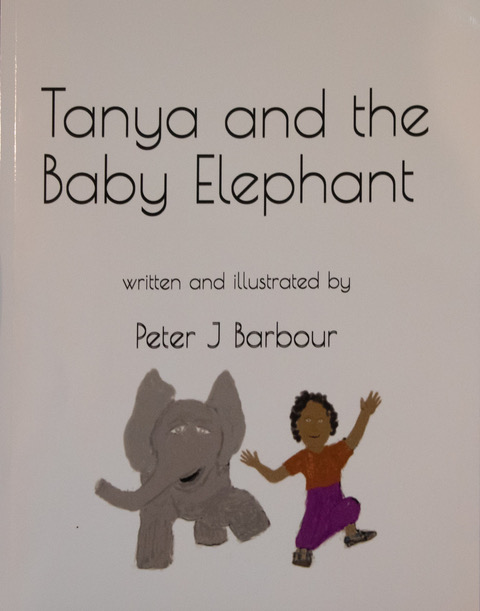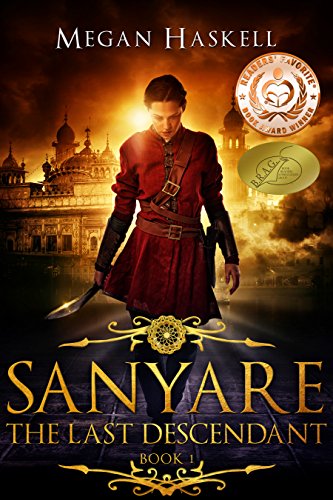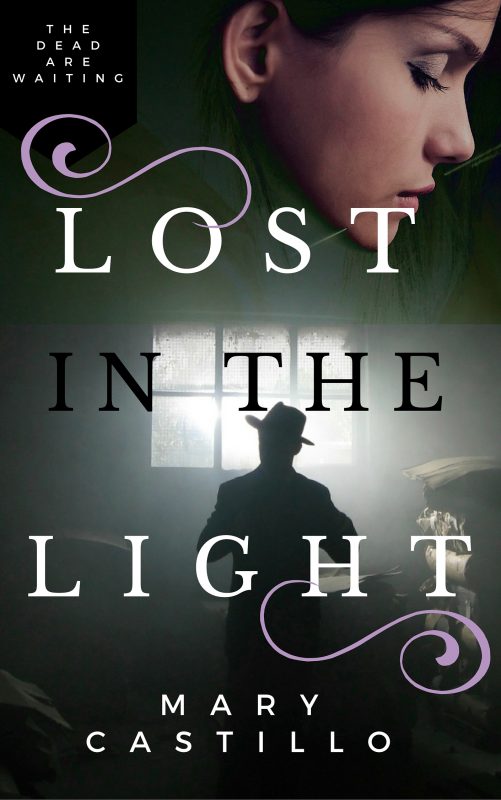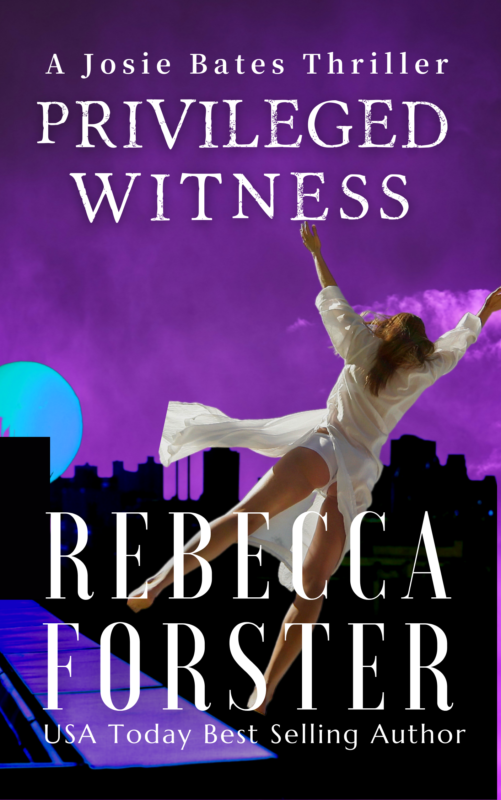How Much Reality?
May 31, 2017 by The Extra Squeeze in category The Extra Squeeze by The Extra Squeeze Team tagged as H.O. Charles, Jenny Jensen, Reality, Rebecca Forster, Robin Blakely, The Extra Squeeze
Ever wonder what industry professionals think about the issues that can really impact our careers? Each month The Extra Squeeze features a fresh topic related to books and publishing.
Amazon mover and shaker Rebecca Forster and her handpicked team of book professionals offer frank responses from the POV of each of their specialties — Writing, Editing, PR/Biz Development, and Cover Design.
During an online ‘ask an author’ a first time author lamented that he could not have his characters fall in love because in real life there were social barriers. The question this month is:
Should reality be restrictive when we write? How much reality is too much?

Jenny Jensen
Developmental editor who has worked for twenty plus years with new and established authors of both fiction and non-fiction, traditional and indie.
How much reality is too much? Noon on April 15, midnight looming -‐ that’s too much reality for me.
But my demands of reality in fiction are less fearful and far more forgiving. Authors create a world for the reader to happily visit; a world ruled by its own inner reality. As long as the actions of the characters stay within the boundaries of that inner reality, I say anything goes.
If you’re writing a Steampunk tale with clocks that speak and mechanical jeweled birds and a hero with an ocular implant that sees the soul, then it would make no story sense to have him checking YouTube. If fantasy is your genre and the fairy queen the hero, you wouldn’t put her in Louboutins. Suspension of belief demands adherence to the story’s inner reality; then the reader can freely let go of her own beliefs and join in the author’s world.
When your genre is set in the world of shared reality, the real world, bending that reality gets tricky. Whatever action might boarder on unbelievable may work perfectly if it has been set up correctly, allowing the story sense to stay intact. After all, when characters break the rules, that’s what spurs the tension—as long as it makes good story sense.
The unforgivable distortions of reality are anachronisms. I see that often when I work story development with historical fiction. Nothing jars you out of a tale of medieval court life faster than a character saying, “hey, chill out” or “no way!” An author needs to be aware of their story’s own internal logic and respect that logic; and that includes dialogue. It’s your creation and I’m willing to travel into your world, as long as that reality makes its own, consistent sense.

Robin Blakely
PR/Business Development coach for writers and artists; CEO, Creative Center of America; member, Forbes Coaches Council.
As a reader, I implore you to write the story that will fascinate and thrill me–move my soul and ignite my imagination. Please, use your writer’s magic. Make me believe that your bigger-than-life characters and more-incredible-than-life circumstances are real. I just want to escape into an extraordinary tale no matter how fantastic the elements are.
BUT…from a promotional perspective, I warn you: proceed with caution. Your story won’t likely be your biggest problem. Your hidden landmine will more likely be buried in the promotional territory. Quite simply, your story content must match your book description. Don’t pretend your work is something it’s not.
As a PR professional, I am much less concerned about what you did in your story and much more concerned about how you characterize the work. Make sure the content and description align seamlessly. If you say you wrote a historical romance, you better be historically accurate and romantically mesmerizing. If you aren’t those things, re-package the description accurately. Imagine if you bought a box of Cheerios and opened the box and found oatmeal. Nothing is intrinsically wrong with oatmeal unless you thought you were getting Cheerios. The same thing happens with books.
Do what it takes to get your promotional alignment right…Then, defend your story choices with substance and panache. Be aware that many things you write would not likely happen in real life. It’s okay to say: “I chose to explore it anyway…writers do that.” But the oatmeal-in-a-cheerio-box thing…steer completely clear of that nonsense.

USA Today Bestselling author of 35 books, including the Witness series and the new Finn O’Brien series.
I write legal and police thrillers sprinkled with political elements. Being neither a cop, lawyer, or politician, I do get anxious about crossing professional lines, disrespecting procedures or, frankly, just looking like I don’t know what I’m talking about. No author who tackles a fact-based subject wants to look dumb. When I get nervous about such things I remind myself that I am not writing about real life, I am being inspired by it.
If procedural writers told literal stories, our novels would be the best sleep aid in history. Frankly, most trials and investigations are tedious and boring. My job is to identify the part of reality that is exciting, thought provoking, or suspenseful so that I can build upon it, not be slave to it. When I write, I start by finding a concept within the framework of the justice system that intrigues me. For instance, my husband presided over one of the first trials in which a child was tried as an adult. I was inspired to write Hostile Witness. The plot was about of a young girl caught up in our legal system; the story was about her fight for survival in life. I do research to make sure that I stay within procedural bounds, but I am the author and I must choose which of those boundaries to adhere to, which to ignore and which to use to enhance my story.
So be inspired by reality not hobbled by it. Be inquisitive and smart. Understand the reality of your universe and then bend it.

Cover designer and author of the fantasy series, The Fireblade Array is on deadline this month. She’ll join The Extra Squeeze team again next month.
If you have a topic or question for the Extra Squeeze Team, contact the Extra Squeeze online producer Marianne Donley by using this form.
Sensitivity Editors
April 30, 2017 by The Extra Squeeze in category The Extra Squeeze by The Extra Squeeze Team tagged as H.O. Charles, Jenny Jensen, Rebecca Forster, Robin Blakely, Sensitivity Editors, The Extra Squeeze
Ever wonder what industry professionals think about the issues that can really impact our careers? Each month The Extra Squeeze features a fresh topic related to books and publishing.
Amazon mover and shaker Rebecca Forster and her handpicked team of book professionals offer frank responses from the POV of each of their specialties — Writing, Editing, PR/Biz Development, and Cover Design.
April’s topic for The Extra Squeeze Team came from this article in the Chicago Tribune.
What does the Extra Squeeze Team think about Sensitivity Editors?

Rebecca Forster
USA Today Bestselling author of 35 books, including the Witness series and the new Finn O’Brien series.
When I was a new author, I received a letter from a reader accusing me of being racist for using a certain adjective to describe a character of color. I was disturbed because I had offended the reader but upon reflection, I came to believe I had done nothing wrong.
I take my craft very seriously, choosing every word carefully to create a deeply visual reading experience and to express various points of view. If sensitivity editors become the norm, I will begin to second guess those words and the result will level a playing field that should be filled with intellectual and emotional obstacles. I believe it is better for a reader to close a book and to reject a writer’s work than to hobble the creative exploration of the world around us.

Jenny Jensen
Developmental editor who has worked for twenty plus years with new and established authors of both fiction and non-fiction, traditional and indie.
Part of editing is sensitivity — to the tone of the book and to the needs of the market. I’ve worked on manuscripts where the content is offensive. I ask myself, is that offensive to me, or to the market?
I’m not in the business of censorship; my personal sensibilities are not the point. However, as a story editor it is my business to point out when the narrative is boring, adds nothing, or employs language that is likely to offend the intended market.
‘Sensitivity’ is relative. To edit only for insensitive material blurs, to near invisibility, the line between editing for good writing and suppression of open expression. A good editor will point out insensitivity. It is up to the author to accept or reject the edit.
Robin Blakely
PR/Business Development coach for writers and artists; CEO, Creative Center of America; member, Forbes Coaches Council.
I am in the business of promoting author brands, so my interest in the trend of hiring a sensitivity editor is focused on the impact such a thing can have on author PR and book publicity. To cut to the chase, I’m not a fan—yet.
Here’s why… For many readers, a book can help reflect what is wrong in the world even if the author was not trying to paint the picture of the world that the book ultimately reveals. Straight up, I think most readers are smart and I know they deserve to be treated with honesty and extreme care. From a PR perspective, it is important to me that the reader always meets the real author—no masks. That means reader/writer relationships must be authentic to the writer and genuinely tied to the writer’s real work. Readers trust real and I trust that most writers are sensitive enough to choose words that accurately reflect their point of view and their reality.
If the author is heavily censored, overhauled, and cloaked by a sensitivity editor, then the reader is shaking the hand of a gloved stranger. From a PR-perspective, I have encountered authors who need a wake-up call regarding the impact of their voices and their word choices. Sensitivity editors can offer feedback that broadens the author’s awareness. Or, the sensitivity editor can enable the author to be masked in a way that is unfair to the buyer of the product.
Many years ago, as a young mom, I encountered a parenting handbook that had not been edited by a sensitivity editor. The medical expert was biased against me. The author’s words perpetuated the myth that infertility was a cosmic sign and that chronic childhood illness, particularly asthma, should be largely blamed on the parent, especially if the mom was a working mother. Luckily, I was not hurt by that book’s lack of sensitivity editing; in fact, I believe I was protected by the lack of it. The author’s own uncensored words made it easy for me to discern that he was not good enough to offer advice to me about my baby. I threw that book away and found a better author.
Today, when I am asked: “sensitivity editor or not?”; I like to say: “That’s up to you.” I remain on the fence. I don’t like censorship…but, I don’t like dumb stereotypes either—especially hurtful stereotypes about young moms, children with chronic illness, people of color, single parents, older adults, immigrants, communities of faith, families living in rural areas, or the inner cities, or the suburbs. When it comes to sensitivity, there are as many stereotypes as there are people. The real world is not very sensitive. As a reader and as a PR professional, I like to know exactly who wrote the words I am reading…and if you had to use a sensitivity editor, I would likely wonder why.
H.O. Charles
Cover designer and author of the fantasy series, The Fireblade Array
I think there are two types of offensive content in this context. One is where the author knowingly intends to shock or set a certain tone by using language that some/many will consider offensive. The second is unknowing offence, where the author – either through ignorance or accident – employs language/story lines that are unintentionally patronising to, or dismissive of, one group of people. The sensitivity readers in that article seem to be dealing exclusively with the second type, and my initial response is: Great! An editor like that will help the writer produce a contemporary novel that speaks from the social outlook we should be aiming for today (even if we write historical fiction). On the other hand, this sounds like research the author should have already done themselves. If the author is writing about a specific group of people who use language in a manner that is different from their own, then surely that writer should have researched such a group thoroughly already? Perhaps employing a sensitivity reader instead of doing one’s own research is easier now we have the interwebs, and it involves less travelling, so there’s that(!).
But the downside is that the writer will be relying upon the opinion and outlook of **one** reader. I do not believe I represent ALL northerners (in the UK, that is), and while I may be worried about stereotypes of people from Yorkshire having low educational attainment, the next Yorkshire person might think it is even worse to be conflated with a Lancastrian! And then there are the Scots, who are technically northerners in the UK too, and could feel the term’s applicability to Yorkshire/Lancashire reflects the Englishman’s arrogant tendency to forget they exist…
Another thing worth considering is that the nature of offence changes over time, and in spite of our best attempts, no single book will ever be truly inoffensive to everyone. What we write innocently today may be judged differently tomorrow (let’s imagine, for example, that meat-eating or using gendered pronouns becomes abhorrent to future generations – how would that alter the way you write your characters?!). That’s not to say we should abandon conveying our own sense of morality in our novels, or rejoice in our own ignorance, or that we should aim for anything other than the best book we can write, just that we should be aware that pleasing everyone for all the years to come is impossible.
What do you think of Sensitivity Editors? Scroll down to the comment section and tell us what you think.
If you would like to know more about Sensitivity Editors, here are a few links:
Do you have a question or topic for The Extra Squeeze Team? Use the form below to send in your ideas.
A Question for The Extra Squeeze Team
April 21, 2017 by marianne h donley in category The Extra Squeeze by The Extra Squeeze Team tagged as Sensitivy Editors, The Exta Squeeze
A few weeks ago, I read an article in the Chicago Tribune about publishers hiring sensitivity editors, especially for children’s books. From the title of the article, I assumed that a sensitivity editor would flag books and require authors to include some sort of warning that the characters or situation depicted in that book might be upsetting to some readers–sort of like the nightly news caution before showing graphic images or The Myth Busters “Don’t Try This At Home.”
However, the article quickly set me straight. Sensitivity Editors are readers, hired by either the publishing house or the author, to examine a manuscript and point out unconscious bias. This seemed like a good idea to me. If I were writing a character or situation for which I had no direct knowledge, I would want someone who had that knowledge to read what I wrote and point out mistakes. Not fix the mistakes, but point them out.
Much to my surprise, not everyone agreed with me. Authors, editors and readers have had mixed reactions to the idea. Some see it as a good idea, research, and a way to ensure the characters or situations are well-rounded and realistic. Others see it as censorship and slippery slope leading to the banning of thoughts and ideas.
So my question for The Extra Squeeze Team: What do you think about Sensitivity Editors?
Come back to A Slice of Orange on April 30th to read what The Extra Squeeze Team thinks.
10 0 Read moreMeet The Extra Squeeze Team
April 17, 2017 by marianne h donley in category The Extra Squeeze by The Extra Squeeze Team, Writing tagged as Extra Squeeze Team, HO Charles, Jenny Jensen. Rebecca Forster, Robin Blakley
Ever wonder what industry professionals think about the issues that can really impact our careers? Each month The Extra Squeeze features a fresh topic related to books and publishing.
Amazon mover and shaker Rebecca Forster and her handpicked team of book professionals offer frank responses from the POV of each of their specialties — Writing, Editing, PR/Biz Development, and Cover Design.
Meet the Extra Squeeze Team

USA Today Bestselling author of 35 books, including the Witness series and the new Finn O’Brien series.
Developmental editor who has worked for twenty plus years with new and established authors of both fiction and non-fiction, traditional and indie.


PR/Business Development coach for writers and artists; CEO, Creative Center of America; member, Forbes Coaches Council.

If you have a topic or question for the Extra Squeeze Team, contact the Extra Squeeze online producer Marianne Donley by using the form: http://www.asliceoforange.net/contact/the-extra-squeeze/
Affiliate Links
A Slice of Orange is an affiliate with some of the booksellers listed on this website, including Barnes & Nobel, Books A Million, iBooks, Kobo, and Smashwords. This means A Slice of Orange may earn a small advertising fee from sales made through the links used on this website. There are reminders of these affiliate links on the pages for individual books.
Search A Slice of Orange
Find a Column
Archives
Featured Books
TANYA AND THE BABY ELEPHANT
Tanya is stuck at home. Can a baby elephant make her less lonely?
More info →SANYARE: THE LAST DESCENDANT
A woman torn between honor and survival…
More info →LOST IN THE LIGHT
One October morning in 1932, Vicente Sorolla entered the white house on the hill and was never seen again. Now, Detective Dori Orihuela witnesses his brutal murder in her nightmares.
More info →PRIVILEGED WITNESS
The beautiful wife of a senate candidate is dead; his disturbed sister is accused.
More info →Newsletter
Contributing Authors
Search A Slice of Orange
Find a Column
Archives
Authors in the Bookstore
- A. E. Decker
- A. J. Scudiere
- A.J. Sidransky
- Abby Collette
- Alanna Lucus
- Albert Marrin
- Alice Duncan
- Alina K. Field
- Alison Green Myers
- Andi Lawrencovna
- Andrew C Raiford
- Angela Pryce
- Aviva Vaughn
- Barbara Ankrum
- Bethlehem Writers Group, LLC
- Carol L. Wright
- Celeste Barclay
- Christina Alexandra
- Christopher D. Ochs
- Claire Davon
- Claire Naden
- Courtnee Turner Hoyle
- Courtney Annicchiarico
- D. Lieber
- Daniel V. Meier Jr.
- Debra Dixon
- Debra H. Goldstein
- Debra Holland
- Dee Ann Palmer
- Denise M. Colby
- Diane Benefiel
- Diane Sismour
- Dianna Sinovic
- DT Krippene
- E.B. Dawson
- Emilie Dallaire
- Emily Brightwell
- Emily PW Murphy
- Fae Rowen
- Faith L. Justice
- Frances Amati
- Geralyn Corcillo
- Glynnis Campbell
- Greg Jolley
- H. O. Charles
- Jaclyn Roché
- Jacqueline Diamond
- Janet Lynn and Will Zeilinger
- Jeff Baird
- Jenna Barwin
- Jenne Kern
- Jennifer D. Bokal
- Jennifer Lyon
- Jerome W. McFadden
- Jill Piscitello
- Jina Bacarr
- Jo A. Hiestand
- Jodi Bogert
- Jolina Petersheim
- Jonathan Maberry
- Joy Allyson
- Judy Duarte
- Justin Murphy
- Justine Davis
- Kat Martin
- Kidd Wadsworth
- Kitty Bucholtz
- Kristy Tate
- Larry Deibert
- Larry Hamilton
- Laura Drake
- Laurie Stevens
- Leslie Knowles
- Li-Ying Lundquist
- Linda Carroll-Bradd
- Linda Lappin
- Linda McLaughlin
- Linda O. Johnston
- Lisa Preston
- Lolo Paige
- Loran Holt
- Lyssa Kay Adams
- Madeline Ash
- Margarita Engle
- Marguerite Quantaine
- Marianne H. Donley
- Mary Castillo
- Maureen Klovers
- Megan Haskell
- Melanie Waterbury
- Melissa Chambers
- Melodie Winawer
- Meriam Wilhelm
- Mikel J. Wilson
- Mindy Neff
- Monica McCabe
- Nancy Brashear
- Neetu Malik
- Nikki Prince
- Once Upon Anthologies
- Paula Gail Benson
- Penny Reid
- Peter Barbour
- Priscilla Oliveras
- R. H. Kohno
- Rachel Hailey
- Ralph Hieb
- Ramcy Diek
- Ransom Stephens
- Rebecca Forster
- Renae Wrich
- Roxy Matthews
- Ryder Hunte Clancy
- Sally Paradysz
- Simone de Muñoz
- Sophie Barnes
- Susan Squires
- T. D. Fox
- Tara C. Allred
- Tara Lain
- Tari Lynn Jewett
- Terri Osburn
- Tracy Reed
- Vera Jane Cook
- Vicki Crum
- Writing Something Romantic
Affiliate Links
A Slice of Orange is an affiliate with some of the booksellers listed on this website, including Barnes & Nobel, Books A Million, iBooks, Kobo, and Smashwords. This means A Slice of Orange may earn a small advertising fee from sales made through the links used on this website. There are reminders of these affiliate links on the pages for individual books.










































